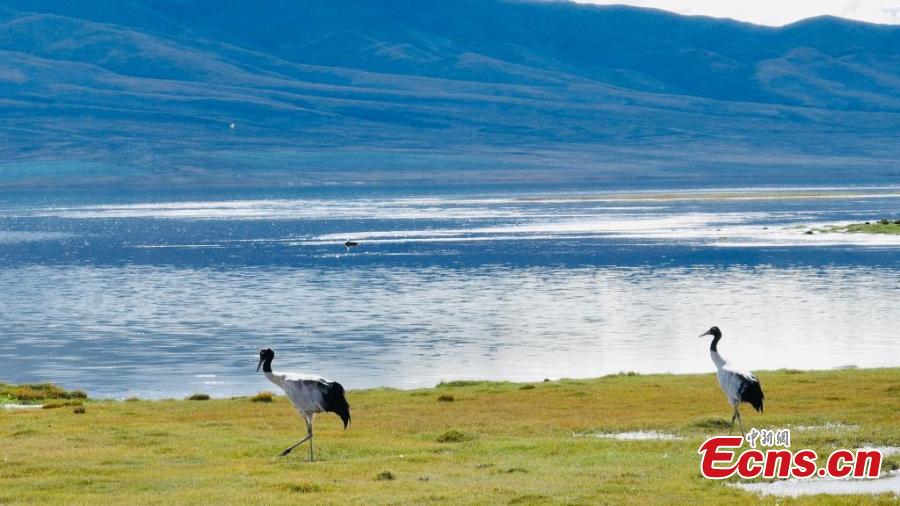
Solomon Islands bags another PHD with the recent graduation of Dr Kerryn Sogha Galokale who graduated with a Doctorate of Philosophy (PhD) in Pacific Studies from the University of Auckland in New Zealand. It was not an easy journey for a full time mother who had to take care of her daughter while undergoing full-time PhD studies to attain her doctorate. Congratulations to Dr Kerryn Sogha Galokale for reaching the peak in her academic achievement and education journey making the country proud.
Hailing from the beautiful island of Bareho in Nono Lagoon, Marovo, Western Province and Loloko village of Choiseul Province, she was brought up by Pastor Newton and Ruth Galokale. Both of them are retired church workers of the Seventh Day Adventist Church. Ms Galokale recalled growing up in the 80s and 90s in Honiara where life was quite challenging for her parents in raising her with her four siblings.

Seeing their struggles, her parents always encouraged them to do their best in school work. Galokale said her dad always reminded them to never forget God in their lives and as he has nothing to pass on to them, he urged them to guard their education to give them a better life in future. Her mum, a primary teacher, always emphasized the importance of reading to them.
“With the little money they had, they invested in buying reading books for us from the Adventist Book Centre (ABC),” she said. And that was when she started reading the story “Gifted Hands” by Dr Ben Carson. She just loved the story and re-read it more than once.
“I was so inspired by the story that I committed myself to a motto, ‘If Somebody Can Do It, Why Can’t I?’ This motto became central to me throughout my educational journey.” Her primary schooling years were undertaken at Kukum SDA Primary, Vura Primary and Burns Creek SDA Primary. When she was in grade two at Vura Primary, her mum was her teacher.
She loved her teaching and that inspired her to set her goal of becoming a teacher like her mum. After completing her primary education in 1992, she went on to attend Betikama Adventist High School now Betikama Adventist College (BAC). She said one of her favourite subjects is English.
“English became my favourite subject and I always enjoyed the lessons and activities.” She recalled that she had always been inspired by some of her English teachers, namely Mr Isaac Seama, Mrs Jentar Reggie, Mrs Elain Wilikai, Mr Peter Stanley and Mrs Donna Posala. In 1996 during her fourth form, Mrs Wilikai encouraged her to be an English teacher.
In 1999, she was offered a Solomon Islands Government (SIG) Scholarship to do Form 7 Arts at the then Solomon Islands College of Higher Education (SICHE). However, towards the end of that year, the ethnic tension started to brew. Around that time, they were living at Kolona Village, East Guadalcanal.
So, her parents decided it would be best for her to further her education at Pacific Adventist University (PAU) in Papua New Guinea (PNG). “The Ministry of Education and Human Resources Development (MERHD) informed me that I would lose my SIG Scholarship if I choose PAU over SICHE to do my Bachelor of Secondary Education.” She decided to forfeit her government scholarship and went on to study at PAU.
“It was a decision I never regretted.” During her four years of study at PAU, she never returned home for holidays. “Instead, I worked for my school fees at the university.
During the semesters, I also worked as a housekeeper for a PAU staff for a little money to pay for my basic needs. “Life was challenging during those years, but I was determined to complete my study before I could return to my country.” Goal setting was essential for her.
So, in 2003, during her final year of study, she set four goals to achieve after she graduated from PAU. “One of the goals was to graduate with a PhD,” she recalled. From PAU, she was called by the Seventh Day Adventist (SDA) Education Authority of the Solomon Islands Mission (SIM) to teach at various secondary schools in Honiara and in the provinces.
During those years, she realized that professional development and learning opportunities for teachers were very limited. There was also a lack of coaching and mentoring for beginner teachers. Teaching resources was also a challenge, especially for the schools she taught in the provinces.
As such, she felt the need to do further training. After seven years of secondary teaching, she was awarded a New Zealand Development Scholarship to undertake her Master of Education Programme at Massey University in New Zealand from 2011 to 2013. Her research focussed on the potential of creating professional learning communities, an approach for continuous professional development and learning of community high school teachers.
After she graduating from Massey University, she took up a position as a Language Teaching Assistant/Facilitator in the College of Foundation Studies at the University of South Pacific Solomon Islands (USPSI) Campus for four years. “Solomon Islands is culturally and linguistically diverse. So, I encountered students from various cultural backgrounds and learning needs each semester.
“Two main challenges I experienced in my teaching were getting my students to be confident to use English in our tutorial sessions. “Secondly, I was also confronted with the need to connect the course materials to my students’ cultural context and background. “Even though I encouraged my students to progress in acquiring fluency and competency in English, I was also mindful of the need to preserve their indigenous languages and cultures.
“I asked: How do I teach the English language in a regional institution without delimiting the students’ cultural knowledge, understanding, practices, and values? Hence, began my search for a programme that would suit my interest.” By then, she was immensely inspired by the educational journeys of Solomon Islands women like Dr Patricia Rodie, Dr Janine Simi, the Late Dr Susanne Maezama, Dr Irene Paulsen and other Pacific women academics, she said. In 2018, she moved with her husband, Dr Derek Futaiasi and daughter, Liz-Amarissah to Canberra, Australia, as he began his PhD study at the Australian National University (ANU).
She decided to commit that whole year to spending quality time with their two-year-old daughter before she would embark on any PhD study. Nonetheless, she continued developing her research proposal during that year and connected with various academic institutions. She received enrolment offers from most of these institutions but no scholarship.
She did not want to give up searching as she knew the right institution would still have the right programme for her. “Finally, as I researched the University of Auckland, I came across the Pacific Studies programme in the Faculty of Arts. “I was impressed with the Pacific Studies programme and its academic staff and their research contributions to Pacific research.
I knew that Pacific Studies would suit my research proposal and study interest. “As such, I applied and was given an enrolment offer to undertake a PhD in Pacific Studies. Also, I was offered a Faculty of Arts Doctoral Scholarship,” she said.
In 2019, she began her PhD study journey at the University of Auckland, New Zealeand. It was a challenging beginning as she navigated between PhD study and attending to her daughter, who was three years old. “Being far from home and family, there were moments when study pressure was just unsurmountable and I broke down in tears.
“Also, being a black Melanesian in a Western Institution is sometimes scary. But I always reminded myself that my skin color is beautiful,” she recalled. There were also academic programmes, workshops, and conferences that she could not attend because she had to be her baby.
Also, she is a Sabbath keeper and cannot attend academic programmes on Friday evenings or on Saturdays. “But my faith in God and being guided by my motto, my daughter’s presence, and the overwhelming support from the Pacific Studies academic staff, peers, church friends, and families pushed me to go beyond my limits no matter what it took,” she said. The year 2020 was the most challenging as the global pandemic of COVID-19 hit New Zealand.
University students throughout New Zealand withdrew from their studies. “For me, it was also the darkest year of lockdowns and uncertainties. However, online connections were maintained with my supervisors, church friends and families, and my faith in God,” she said.
By early 2021, she decided to return to Solomon Islands with her daughter, thinking she would withdraw from her PhD study for some years before resuming. However, when she arrived home, her mother reminded her, “We are old now, so we want you to complete your study while we are still alive.” Upon hearing that encouragement from her mum, she decided not to quit.
As part of her research programme, she travelled to Sa’a in South Malaita and lived with the kind and friendly Sa’a people for three months while conducting her research study. “I was interested to learn about their experiences and perspectives towards their Sa’a language, Pijin and English in (in)formal learning contexts. “Also, I was keen to learn about their attitudes and perspectives toward implementing the Vernacular Languages and English in Education Policy (VLEEP) at Charles Elliot Fox Primary School.
” Her thesis is titled, ‘Examining the Vernacular Languages and English in Education Policy and Practices: Language Attitudes and Perspectives Towards Sa’a Language, Pijin, and English in Sa’a Indigenous Community in Solomon Islands’. She found that language attitudes and perspectives of the community affected the implementation of the VLEEP. However, integrating the cultural elements of Hailadami (Sa’a traditional chiefly system) and the social settings of Sa’a in the VLEEP programme may be an approach to re-indigenise the Pacific vernacular language education programme.
She and her daughter returned to New Zealand in early 2022. She was given six months of extension by then as the scholarship was only for three years and half. She recalled that when her submission date was due, her thesis writing was far from completion.
She realized that another six months would be needed to complete her write-up. She used all her savings from her stipend to re-enrol for another six months. “It was a difficult decision as we had nothing left for accommodation rental and basic needs.
I pleaded to God not to allow my daughter and me to be homeless in a foreign land. God did answer our prayers! “The Pacific Studies Department offered us free accommodation for four months in student accommodation, hardship allowance, and food vouchers that we survived on until I submitted my thesis in February 2023. “After my thesis submission, I undertook a graduate teaching assistant role in Pacific Studies.
Also, I was a research fellow in Pacific Climate Research, a Pacific-led project.” She also highlighted that even though there were good opportunities to continue working abroad and having a good life, her love for the country made her to return. “I decided to return to our beloved country, Solomon Islands, to serve my people and nation.
I believe that if there is a time to help our country, it is now,” she said. They both returned to Honiara early this year where she took up an academic position in the Discipline of Education at the University of South Pacific (USP) Solomon Islands Campus. Reflecting on the past years, it was a journey of perseverance that would not have been possible without God and the immeasurable support she received from her academic supervisors, friends in New Zealand, family members and many others.
“My life journey did not begin in my later years but in my early years at home with my parents. Respect our homes because they are our first classrooms where learning and dreams begin. “Set your goals according to your interests and passion and work towards achieving your goals.
“It does not matter whether you crawl or fly to achieve your goals. What matters the most is that you persevere amidst challenges to reach the finish line.” Also, she would like to honour and dedicate her research to the chiefs and people of Sa’a Village in South Malaita, who accepted her into their community.
“Furthermore, it is crucial for our senior academics to continue mentoring and coaching early academics and help them publish their works. “Also, there is a need for close collaboration between the academic staff of SINU, USPSI, and the MERHD, especially with research relevant to the country’s education policies. “As institutions, there is also a great need to go down to the communities, create positive relationships and connections with them, and listen to our people’s perspectives and experiences regarding what matters to their hearts and minds regarding education.
“Let’s see ourselves as all Solomon Islanders from the various spaces we belong to, breaking down the walls and fences between/in our institutions and working together to build our nation. “I dream that one day, our academic institutions will produce the best students in the Pacific.” Lisa Uperesa, PhD, Associate Professor at the Department of Asian American Studies, Division of Social Sciences, University of California, Los Angeles said, that Kerryn’s study focused on language policy in Solomon Islands and vernacular language approaches in schools in an indigenous (Saa) community.
She worked with teachers, administrators, students, families, and village elders to understand attitudes toward vernacular languages in schools, how VLEEP had been implemented, and the kinds of supports teachers had for teaching in vernacular languages. “Her study gives important insight into the promise and challenges of VLEEP as a policy, which is important to future vernacular language efforts in Solomon Islands and in the wider Pacific. “Maintaining indigenous Pacific languages has been an effort across the region and her study gives important insight into the opportunities and challenges for teaching with those languages in schools,” she said.
Professor Uperesa said Professor Jemaima Tiatia-Seath and Dr Melenaite Taumoefolau, who were part of the supervision committee, will agree that it was a pleasure working with Kerryn. “We’re all very proud of her. Her studies were disrupted with the border closures due to COVID-19 and she had long periods of time away from her family, but she never gave up no matter what the issue was.
She said, it was an honor to support a daughter of Solomon Islands achieve her goals. “I know she will go on to make important contributions to academia and to her communities and wish her all the best in the future.” Dr Galokale has acknowledged her three supervisors and two examiners for the success of her study: 1.
Associate Professor Lisa Uperesa (Primary Supervisor) 2. Professor Jemaima Tiatia-Siau (Co-supervisor) 3. Dr Melenaite Taumoefolau (Co-supervisor) Examiners: 1.
Professor Christine Jourdan (Concordia University) 2. Dr Rosiana Lagi (USP) Fortnight ago, was a proud moment for her as she finally achieved one of her dreams. Her husband, daughter and parents together with family friends and Pacific Studies academic staff were present to witness her officially receive her doctorate.
Looking back, she thanked God, her family, and all those who have supported her throughout her education journey. “I couldn’t stop smiling and crying at the same time as I marched across the stage. “It was one of the most indescribable yet beautiful moments that summed up my life journey as a child in my parents’ home to where I am today.
“I hope my story will inspire a Solomon Islander today or a Melanesian woman or girl to strive for their dreams and goals despite life’s challenges,” she concluded. She is already back in Honiara to serve the nation and its people. Source: Iumi Stori (Facebook).










